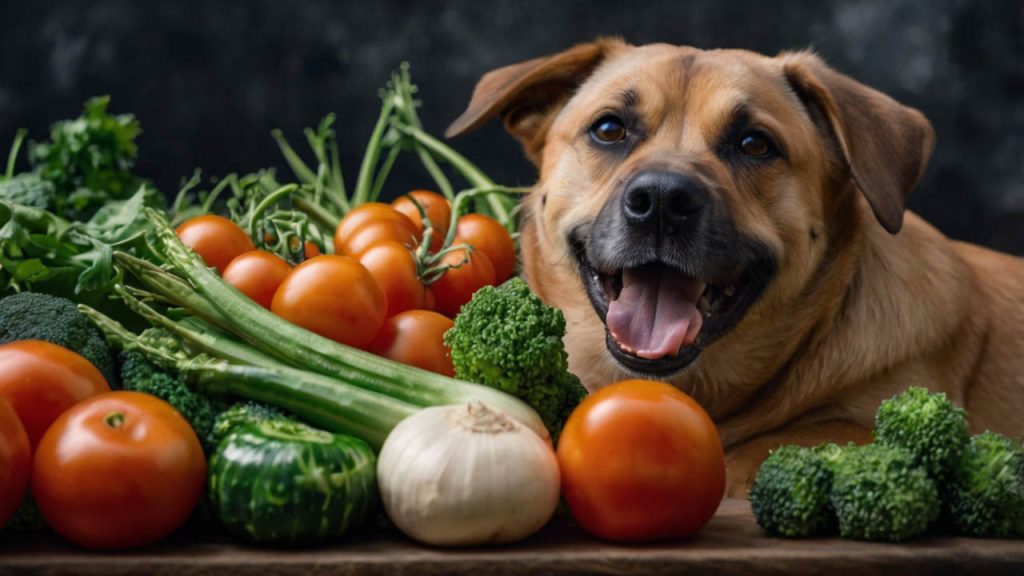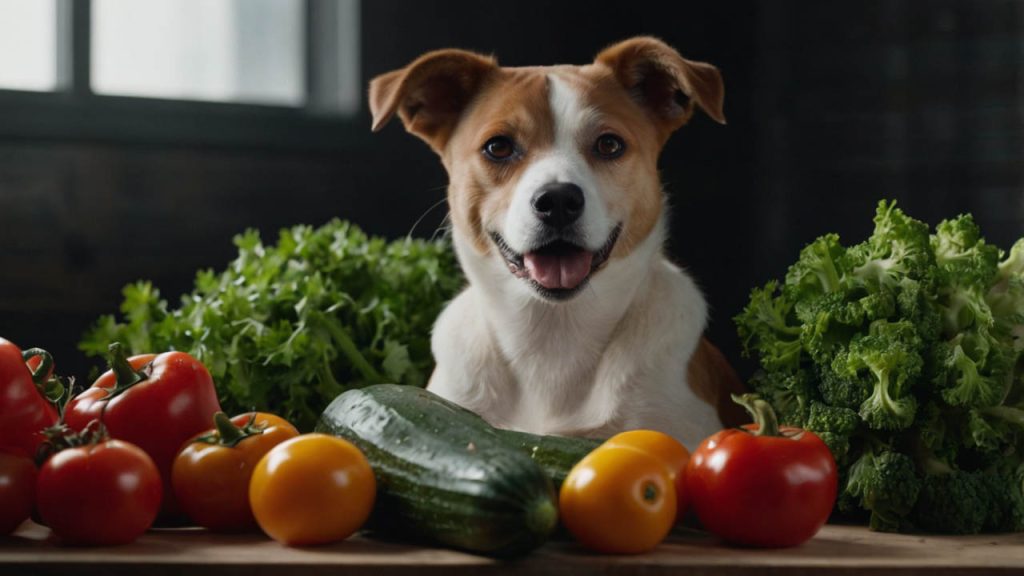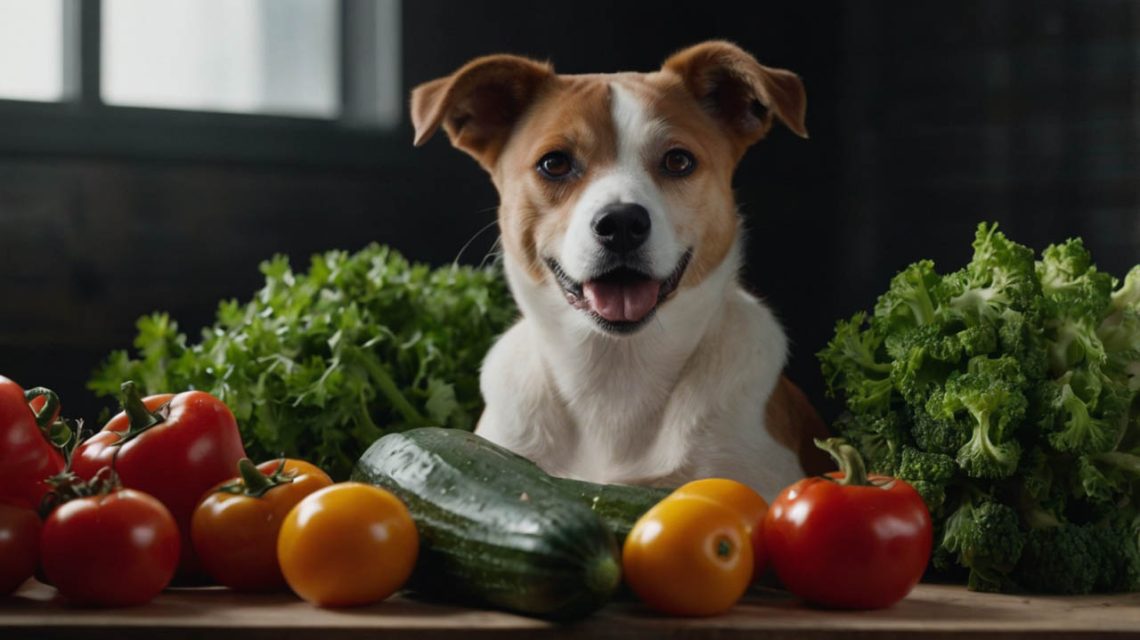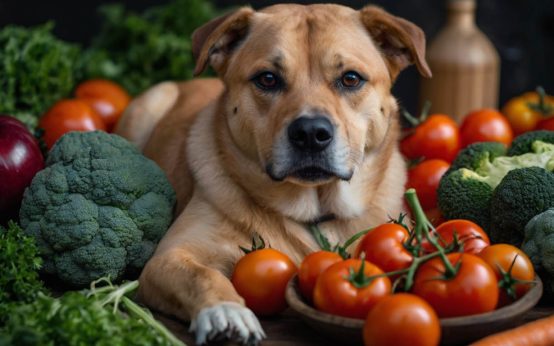Introduction: Nutritious Vegetables for Your Dog’s Health
Understanding what vegetables are good for dogs empowers pet owners to enhance their canine companions’ diets with nutrient-rich, natural foods that promote optimal health and longevity. According to the American College of Veterinary Nutrition, incorporating appropriate vegetables into your dog’s diet provides essential vitamins, minerals, and phytonutrients that support immune function, digestive health, and disease prevention. Moreover, research from veterinary nutritionists demonstrates that dogs consuming moderate amounts of beneficial vegetables show improved weight management, enhanced coat quality, and reduced inflammation compared to those on exclusively commercial diets.
The question of what vegetables are good for dogs becomes increasingly important as pet obesity reaches epidemic proportions, affecting 56% of dogs in North America according to the Association for Pet Obesity Prevention. Vegetables offer low-calorie, nutrient-dense alternatives to commercial treats while providing dietary fiber that promotes satiety and healthy digestion. Furthermore, studies from the University of Illinois College of Veterinary Medicine indicate that strategic vegetable supplementation can reduce the risk of certain cancers, support cardiovascular health, and improve cognitive function in aging dogs.
Determining beneficial vegetables requires careful consideration of canine nutritional needs, digestive capabilities, and potential health conditions. While dogs evolved as omnivores capable of deriving nutrition from plant materials, their shorter digestive tracts and different enzyme production compared to humans necessitate selective vegetable choices and proper preparation methods. Therefore, this comprehensive guide examines scientifically-proven beneficial vegetables, optimal preparation techniques, appropriate serving sizes, and integration strategies to help you safely enhance your dog’s nutrition through vegetable supplementation.
What Vegetables Are Good for Dogs: Top Choices
Green Leafy Vegetables and Their Benefits
Green vegetables rank among the most beneficial when considering what vegetables are good for dogs due to their exceptional nutrient density and digestive compatibility. Spinach provides iron, antioxidants, and vitamins K, A, and C, though moderation proves essential due to oxalate content that can interfere with calcium absorption. Subsequently, veterinary nutritionists recommend limiting spinach to occasional small servings, particularly for dogs with kidney issues.
Kale deserves recognition as a superfood for dogs, offering cancer-fighting compounds, calcium, and vitamins without the high oxalate levels found in spinach. Research from Michigan State University shows that dogs consuming kale regularly demonstrate improved antioxidant status and reduced inflammatory markers. Furthermore, lightly steaming kale enhances digestibility while preserving heat-sensitive nutrients.
Green beans stand out as exceptional vegetables for dogs, providing fiber, vitamins C and K, and manganese with minimal calories. Fresh, frozen, or low-sodium canned green beans make excellent treats for weight management, with studies showing that replacing 10% of regular food with green beans helps overweight dogs achieve healthy weight loss. Moreover, the satisfying crunch of raw green beans provides dental benefits through mechanical plaque removal.
Broccoli offers valuable nutrition when fed appropriately, containing vitamin C, fiber, and sulforaphane, a compound with anti-cancer properties. However, broccoli should comprise less than 10% of daily intake to prevent gastric irritation from isothiocyanates. Additionally, steaming broccoli improves digestibility while maintaining beneficial nutrients.

Root Vegetables That Support Canine Health
Exploring what vegetables are good for dogs reveals root vegetables as excellent sources of complex carbohydrates and essential nutrients. Carrots top the list, providing beta-carotene for eye health, fiber for digestion, and satisfying crunch that promotes dental hygiene. Raw carrot sticks serve as natural toothbrushes, while cooked carrots offer easier digestion for senior dogs or those with dental issues.
Sweet potatoes deliver exceptional nutritional value through vitamins A and C, fiber, and potassium while being gentle on sensitive stomachs. Veterinary gastroenterologists frequently recommend sweet potatoes for dogs with digestive issues, as their soluble fiber helps regulate bowel movements. Research indicates that sweet potatoes’ antioxidants may help prevent certain cancers and support immune function.
Pumpkin deserves special mention for its remarkable digestive benefits. Plain, cooked pumpkin (not spiced pie filling) contains soluble and insoluble fiber that helps normalize stool consistency, making it effective for both diarrhea and constipation. Studies show that 1-4 tablespoons of pumpkin daily resolves minor digestive issues in 85% of dogs within 24-48 hours.
Beets provide folate, manganese, and potassium while supporting liver detoxification through betalain compounds. However, their natural sugar content requires moderation, particularly for diabetic dogs. Furthermore, beet consumption may cause harmless red discoloration in urine, which owners should expect.
Nutritional Benefits: What Vegetables Are Good for Dogs
Essential Vitamins and Minerals
Understanding what vegetables are good for dogs requires examining their unique nutritional contributions. Vitamin A from orange and yellow vegetables supports vision, immune function, and cellular health. Beta-carotene converts to vitamin A as needed, preventing toxicity risks associated with synthetic supplements while providing antioxidant protection.
B-complex vitamins abundant in vegetables support energy metabolism, nervous system function, and red blood cell formation. Folate from leafy greens proves particularly important for pregnant dogs and cellular DNA synthesis. Moreover, these water-soluble vitamins require regular replenishment through diet.
Vitamin C, while produced internally by dogs, provides additional antioxidant support when consumed through vegetables. Stress, illness, and aging increase vitamin C requirements, making vegetable sources valuable for compromised dogs. Research shows that dietary vitamin C may reduce cognitive decline in senior dogs.
Minerals from vegetables complement commercial dog foods effectively. Potassium supports heart rhythm and muscle function, while magnesium aids enzyme reactions and bone health. Additionally, trace minerals like manganese and copper from vegetables support various metabolic processes.
Phytonutrients and Antioxidants
Discovering what vegetables are good for dogs reveals powerful phytonutrients unavailable in commercial foods. Carotenoids from colorful vegetables provide antioxidant protection against cellular damage and may reduce cancer risk. Studies indicate dogs consuming carotenoid-rich vegetables show improved immune responses and slower aging markers.
Flavonoids in vegetables offer anti-inflammatory benefits particularly valuable for arthritic dogs. These compounds help manage chronic inflammation associated with various health conditions. Furthermore, flavonoids support cardiovascular health by strengthening blood vessel walls and improving circulation.
Glucosinolates from cruciferous vegetables like broccoli and cauliflower demonstrate cancer-preventive properties. These compounds activate detoxification enzymes that help eliminate carcinogens. Research from veterinary oncologists suggests regular cruciferous vegetable consumption may reduce certain cancer risks in dogs.
Preparation Methods: What Vegetables Are Good for Dogs
Optimal Cooking Techniques
Proper preparation maximizes benefits when determining what vegetables are good for dogs to feed regularly. Steaming preserves water-soluble vitamins while softening tough fibers for easier digestion. Subsequently, steamed vegetables prove ideal for senior dogs or those with compromised digestive systems.
Raw vegetables offer different advantages, particularly for dental health and weight management. Crunchy raw vegetables help remove plaque mechanically while providing fewer calories than cooked versions. However, chopping vegetables appropriately prevents choking hazards, especially for small breeds.
Pureeing vegetables ensures maximum nutrient absorption for dogs with digestive sensitivities. Blended vegetables mix seamlessly with regular food, preventing selective eating. Moreover, vegetable purees can be frozen in ice cube trays for convenient portion control.
Roasting vegetables without oil or seasonings concentrates flavors that appeal to some dogs. This method caramelizes natural sugars, making vegetables more palatable for picky eaters. Furthermore, roasted vegetables provide variety in texture and taste.
Serving Sizes and Frequency
Understanding appropriate portions when learning what vegetables are good for dogs prevents digestive upset and nutritional imbalances. Vegetables should constitute no more than 10% of total daily calories for most dogs. Excessive vegetable consumption can cause gas, diarrhea, and interfere with protein absorption.
Introduction requires gradual progression over 5-7 days. Start with one teaspoon of prepared vegetables per 10 pounds body weight, mixed with regular food. Subsequently, increase portions while monitoring stool quality and gas production.
Individual tolerance varies significantly between dogs. Some digest vegetables easily, while others experience upset with minimal amounts. Keeping a food diary helps identify optimal vegetables and portions for individual dogs.
What Vegetables Are Good for Dogs with Health Conditions
Vegetables for Weight Management
Identifying what vegetables are good for dogs needing weight loss reveals low-calorie options that promote satiety. Green beans, cucumber, and zucchini provide bulk with minimal calories, helping dogs feel full while reducing caloric intake. Research shows that replacing 25% of regular food with these vegetables accelerates healthy weight loss.
Celery offers negative calories for dogs, requiring more energy to digest than it provides. This makes celery an excellent treat for overweight dogs. Furthermore, celery’s natural compounds freshen breath and provide mild diuretic effects.
Brussels sprouts support weight management through fiber content and metabolism-boosting compounds. These miniature cabbages help regulate blood sugar levels, reducing hunger between meals. Additionally, their bitter taste naturally limits overconsumption.
Supporting Digestive Health
Understanding what vegetables are good for dogs with digestive issues highlights fiber-rich options. Pumpkin remains the gold standard for digestive support, with its unique fiber composition helping both diarrhea and constipation. Veterinary gastroenterologists report 90% improvement in mild digestive issues with pumpkin supplementation.
Butternut squash provides similar benefits to pumpkin with added vitamin A. Its gentle fiber supports regular bowel movements without causing irritation. Moreover, butternut squash’s natural sweetness appeals to picky eaters.
Asparagus contains inulin, a prebiotic fiber that nourishes beneficial gut bacteria. This supports overall digestive health and immune function. However, asparagus should be introduced gradually due to its potential to cause gas.

Safety Considerations and Toxic Vegetables
Vegetables to Avoid
While exploring what vegetables are good for dogs, understanding toxic vegetables proves equally crucial. Onions and garlic cause hemolytic anemia by damaging red blood cells, with toxicity accumulating over time. Even small amounts in seasoning can prove dangerous with repeated exposure.
Mushrooms, particularly wild varieties, pose extreme danger with some causing liver failure within hours. While store-bought mushrooms like button or portobello are technically safe when cooked plain, many veterinarians recommend complete avoidance to prevent dogs from developing interest in potentially deadly wild mushrooms.
Raw potatoes contain solanine, particularly in green areas and sprouts, causing gastrointestinal and neurological symptoms. Cooked potatoes without skin or seasonings prove safe in moderation. Furthermore, sweet potatoes offer superior nutrition with lower toxicity risk.
Recognizing Adverse Reactions
Knowing warning signs helps determine what vegetables are good for dogs individually. Gastrointestinal symptoms like vomiting, diarrhea, or excessive gas indicate intolerance or overfeeding. These symptoms typically resolve within 24 hours of removing problematic vegetables.
Allergic reactions, though rare, manifest through itching, hives, or facial swelling. Immediate veterinary attention becomes necessary for breathing difficulties or severe swelling. Moreover, maintaining detailed food records helps identify allergen sources.
Behavioral changes following vegetable consumption warrant investigation. Lethargy, loss of appetite, or unusual aggression may indicate toxicity or severe intolerance. Additionally, neurological symptoms like tremors or coordination loss require emergency veterinary care.
Integration Strategies: What Vegetables Are Good for Dogs
Incorporating Vegetables into Regular Meals
Successfully adding vegetables requires strategic approaches that encourage acceptance. Mixing finely chopped vegetables with regular food prevents selective eating. Dogs often accept vegetables better when combined with familiar flavors and textures.
Creating vegetable-enhanced meals improves nutrition without complete dietary overhaul. Adding appropriate vegetables to commercial food boosts micronutrients and fiber. Research shows that dogs consuming vegetable-supplemented diets demonstrate improved health markers.
Homemade dog food incorporating vegetables requires careful formulation to ensure nutritional balance. Consulting veterinary nutritionists prevents deficiencies that can occur with improperly balanced homemade diets. Furthermore, regular blood work monitors nutritional status.
Using Vegetables as Treats and Rewards
Discovering what vegetables are good for dogs during training reveals healthy alternatives to commercial treats. Carrot sticks, green beans, and cucumber slices work excellently for repetitive training without excessive calories. Subsequently, varying vegetables maintains interest while supporting weight management.
Frozen vegetables provide cooling summer treats that promote hydration. Frozen green beans or carrot sticks soothe teething puppies naturally. Moreover, vegetable ice cubes made from pureed vegetables offer extended entertainment.
Dehydrated vegetables create convenient, portable training rewards. Home dehydrators or low-temperature ovens produce crispy vegetable chips dogs enjoy. Additionally, these treats store well for travel or outdoor activities.
Special Considerations for Different Life Stages
Puppies and Young Dogs
Understanding what vegetables are good for dogs during growth requires special considerations. Puppies under 12 weeks have immature digestive systems requiring gradual vegetable introduction. Start with easily digestible options like cooked sweet potato or pumpkin in tiny amounts.
Growing dogs benefit from vegetables supporting bone and joint development. Vegetables rich in vitamin C support collagen formation, while those containing calcium contribute to skeletal health. However, vegetables should never replace balanced puppy food designed for growth requirements.
Young dogs often accept vegetables more readily than adults, making early introduction valuable. Establishing vegetable consumption habits during puppyhood creates lifelong healthy eating patterns. Furthermore, variety during youth prevents picky eating later.
Senior Dogs and Vegetable Benefits
Identifying what vegetables are good for dogs entering their golden years reveals options supporting age-related needs. Antioxidant-rich vegetables combat oxidative stress associated with aging. Research indicates that dogs consuming high-antioxidant vegetables show slower cognitive decline and improved mobility.
Soft, cooked vegetables accommodate dental issues common in senior dogs. Pureed or finely chopped vegetables ensure nutrient intake despite chewing difficulties. Moreover, moisture-rich vegetables support hydration in older dogs who drink less water.
Anti-inflammatory vegetables help manage arthritis and other age-related conditions. Vegetables containing omega-3 fatty acids and anti-inflammatory compounds provide natural pain management support. Additionally, fiber helps prevent constipation, a common senior dog issue.
Monitoring and Adjusting Vegetable Intake
Tracking Your Dog’s Response
Observing how individual dogs respond helps determine what vegetables are good for dogs specifically. Stool quality serves as a primary indicator of digestive tolerance. Firm, well-formed stools suggest good tolerance, while loose stools indicate excessive amounts or unsuitable vegetables.
Energy levels and coat condition reflect nutritional adequacy with vegetable supplementation. Improved energy, shinier coats, and better skin condition suggest beneficial effects. However, decreased energy might indicate interference with nutrient absorption from excessive fiber.
Weight monitoring ensures vegetables support rather than compromise health goals. Regular weigh-ins help adjust portions for weight management objectives. Furthermore, body condition scoring provides better assessment than weight alone.
Professional Guidance
Veterinary consultation helps determine what vegetables are good for dogs with specific health conditions. Medical conditions may contraindicate certain vegetables despite general safety. Moreover, veterinarians provide personalized recommendations based on individual health status and medications.
Veterinary nutritionists offer expertise for complex dietary planning. They calculate precise vegetable amounts optimizing nutrition while preventing imbalances. Additionally, they formulate therapeutic diets incorporating vegetables for specific health conditions.
Regular health screenings monitor the long-term effects of vegetable supplementation. Blood work reveals any developing deficiencies or excesses. Furthermore, preventive care identifies issues before they become serious problems.
Conclusion: Optimizing Your Dog’s Health Through Vegetables
Understanding what vegetables are good for dogs empowers you to enhance your canine companion’s nutrition naturally and effectively. Throughout this comprehensive guide, you’ve discovered numerous beneficial vegetables, their specific health advantages, proper preparation methods, and safe integration strategies. The key to success lies in selecting appropriate vegetables, introducing them gradually, and monitoring your dog’s individual response while maintaining balance with complete commercial nutrition.
Remember that vegetables should complement, not replace, balanced dog food formulated by nutrition experts. Every dog responds uniquely to different vegetables based on age, health status, digestive capacity, and personal preferences. Start with small amounts of single vegetables, observing your dog’s reaction before expanding variety or increasing portions.
Take action today by choosing one beneficial vegetable from this guide to introduce to your dog. Begin with a small portion of steamed carrot or green bean mixed into their regular meal, monitoring their response over the next week. Document any changes in digestion, energy, or overall wellbeing, and consult your veterinarian before making significant dietary changes, especially if your dog has existing health conditions. Your thoughtful approach to vegetable supplementation will contribute to your dog’s long-term health, vitality, and quality of life.



 What Vegetables Are Good for Dogs: Vet Guide
What Vegetables Are Good for Dogs: Vet Guide